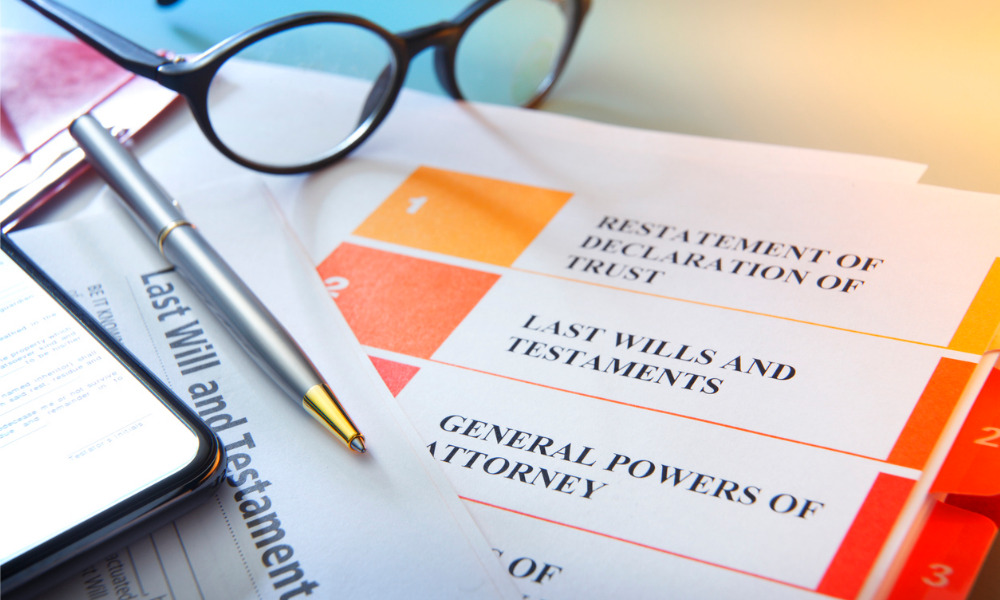
The area of wills, trusts and estates is rapidly changing

The COVID-19 pandemic has driven lawyers to practice differently over the course of 2020 and 2021. The area of wills, trusts, estates and related practice issues and concerns such as capacity, undue influence, elder law, guardianships and power of attorney litigation is rapidly changing and will continue to do so as the population ages and the succession of wealth is at play.
The message that estate litigators Kimberly Whaley & Ian Hull want to get across in the webinar, The Top 10 Things Estate Professionals Should Know About Death and Capacity, is to sharpen your toolkit.
“This topic is particularly important in what is both a changing practice area and a changing time — it’s time to sharpen our fundamental tools & practices,” says Hull, co-founder of Hull & Hull LLP.
Capacity is "a complex arena in our area” and especially when practicing in a more virtual way, these issues are more important than ever. Navigating the complexity and associated hurdles is a balance between legal know-how and experience — it takes “a lot of skill and luck,” notes Whaley, founding partner at WEL Partners.
Both Hull and Whaley are seeing a spike in litigation during older adults’ lifetimes, as opposed to the historically more common will challenges or trust disputes that occurred after a person’s death. The same issues come into play — capacity issues, undue influence, susceptibility, vulnerability — but they are now cropping up more often under power of attorney and guardianship disputes.
Hull believes it’s the “tremendous transfer of wealth that continues to drive these matters,” with people now having the resources to take “more strident positions” in litigation. Estate lawyers have a role to play in keeping these challenges at bay. Hull’s father and firm co-founder, Rodney Hull, used to say, “You can’t do heart surgery on yourself,” and Hull reiterates that wisdom when he states the importance of people appropriately planning their estate — with lawyers as a critical part of that process.
“It isn’t something people can do themselves,” Hull says. “So much of what we do in our practice is a result of people cutting corners on planning, not addressing planning issues or not getting good advice and spending the time and money with advisors to properly organize their estate.”
Family units are not what they once were and these now common complex blended family units demand careful planning considerations and a heightened level of professional planning considerations.
Increasingly important issues in estate planning include digital assets, which “form a big part of any estate these days and are often ignored,” Whaley says. While she’s hopeful there will soon be legislation in this area as a guide, lawyers have to keep on top of their clients “to think more laterally about what their assets are composed of, and what they want to leave, and to provide for by way of ensuring access to those digital assets.”
Even with so many moving and increasingly complicated factors in estate planning, there is also tremendous pressure from the public to get quality work done in an efficient and cost effective way, and Hull considers the understanding and adoption of technological tools to enhance an estate lawyer’s practice to be the “most immediate and pressing element of the practice of law for wills and estates lawyers.” Lawyers must embrace changes, but also sell the fact that lawyers remain a necessary part of the estate planning process.
“The impact of new tools available as technology continues to develop shows the public we can do things efficiently and cost effectively — but with a skillset nobody else can apply other than lawyers,” Hull says, adding that’s why his firm created eState Planner, interactive software designed by lawyers for use by lawyers, which is capable of illustrating an estate plan and formulating a draft will for a lawyer to review and work with clients to finalize.
Hull and Whaley, as litigators, “are seeing the results of a planning lawyer’s work,” Whaley says, and the issues they’ve identified and discuss in the webinar are ones that “if addressed with comprehensive consideration, relevant awareness and current understanding, may go a long way to avoiding litigation.”
Hull agrees, adding they’ve “concisely identified what I would describe as urgent and important estate issues to be current on.”
Learn more about the shifting landscape of wills and estates law — and what you should be keeping an eye on — during Hull & Hull and WEL Partners’ free webinar, “"The Top 10 Things Estate Professionals Should Know About Death and Capacity.” To watch the webinar, click here.